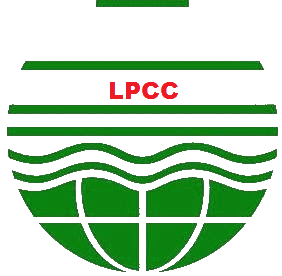VARIOUS LEGISLATIONS UNDER WHICH COMMITTEE IS PERFORMING FUNCTIONS
The Water (Prevention & Control of Pollution) Act, 1974
The Water (Prevention & Control of Pollution) Act, 1974 provides for the prevention and control of Water pollution and maintaining and restoring the wholesomeness of water, for the establishment with a view to carrying out the purposes aforesaid, of Boards for the prevention and control of water pollution, for conferring on and arising to such Board powers and functions relating thereto and for matters connected therewith. The Central and State Pollution Control Boards have been constituted in India under the provisions of this Act. The Committee is responsible for grant of consent for using an outlet for discharge of Trade/Sewage effluent, monitoring of effluent/sewage treatment plants. The Committee has also powers under section 33-A to issue an order to any authority which includes disconnection of power/water supply.
Air (Prevention & Control of Pollution) Act, 1981
The Air Act of 1981 is similar to Water Act of 1974 and aims at the Prevention Control and abatement of air pollution. The Act further provides that the State Boards constituted under the Water Act, 1977 to exercise powers and perform the functions under Air Act also. Like Water Act, Committee is responsible for grant of consent for using an emission outlet, monitoring of emissions, prosecutions. The Committee has powers under Section 31-A to issue an order to any authority which includes disconnection of power/water supply to force an industry to install pollution control equipment.
The Environment (Protection) Act, 1986
This is a comprehensive legislation which aims for the protection and improvement of environment and matters connected therewith. The Act also
includes the provisions of the prevention of hazards to human beings, other living creatures, plants and property.
Under the provisions of the Act various Laboratories called environmental laboratory have been recognized all over India.
The Ministry has also notified standards for liquid, gaseous and solid wastes under the Act. The Ministry has notified the following important
rules under the Environment (Protection) Act, 1986.
Solid Waste Management Rules, 2016
It is comprehensive legislation that is applicable to urban local body, outgrowths in urban agglomerations, census towns as declared by the Registrar General and Census Commissioner of India, notified areas, notified industrial townships, areas under the control of Indian Railways. airports, airbases, Ports and harbours. defence establishments, special economic zones, State and Central government organizations, places of pilgrims, religious and historical importance as may be notified by respective State government from time to time and to every domestic, institutional, commercial responsible for collection, regeneration, storage, transportation, processing and disposal of solid wastes. Every local authority has been made responsible for the implementation of the provisions of these rules and for any infrastructure development. Comprehensive guidelines has also been provided for collection of municipal waste, regeneration of municipal solid wastes, storage of municipal solid wastes, transportation of municipal solid wastes and processing. The main responsibility of implementing the rules is with the local authority. The Local Authority is required to send the annual report to Lakshadweep Pollution Control Committee every year.
Bio-Medical Wastes Management Rules, 2016
These rules are applicable to all the persons who generate, collect receive, store, transport, treat. dispose of and handle bio-medical waste in any form. Every occupier of an institution generating Bio-medical Waste which includes an Hospital, nursing home, clinic, dispensary, veterinary institution, pathological laboratory, blood bank by whatever name called to take steps to ensure that such wastes is handled without any adverse effect to human health. The Committee is prescribed authority for the grant of authorization for handling, collection, treatment, transportation of Bio-medical wastes in U.T.of Lakshadweep
Plastic Waste Management Rules, 2016
These rules were notified by Govt. of India to have control on the manufacture sale and use of virgin and recycled plastic carry bags and recycled
plastic containers. All vendors are prohibited from using carry bags or containers made of recycled plastic for storing. carrying dispensing, or
packaging of food stuffs. The use of recycled carry bags for other purposes have also been regulated and minimum thickness of carry bags made and
virgin plastic have also been provided. The District Magistrate has been made responsible for the enforcement of rules and committee is responsible
for control at manufacturing level.
Use, manufacturing, sale etc. of polythene carry bags have been banned in U.T. of Lakshadweep.
Hazardous & Other Waste (Management & Transboundary Movement) Rules, 2016
This rule has been framed for the control of import, export, storage and disposal of hazardous waste. These rules shall apply to the management of hazardous and other wastes as specified in the Schedules. The State Pollution Control Boards have been authorized to monitor the compliance of the various provisions of the rules. The import/export of wastes is being implemented by the Ministry of Environment & Forests/CPCB directly and Committee is the prescribed authority for grant of authorization for storage, transportation of hazardous wastes.
Noise Pollution (Regulation & Control) Rules, 2000
This is one of the latest legislation aimed at the reduction of ambient noise levels in public places from various sources, inter-alia, industrial activity, construction activity, generator sets, loud speakers, public address system, music systems, vehicular horns and other mechanical devices. Under these rules the State Govt. are required to categorize the areas into industrial commercial, residential or silence area/zones. An area comprising not less than 100 meters around hospitals, educational institutions and courts is to be declared as silence zones/area.


